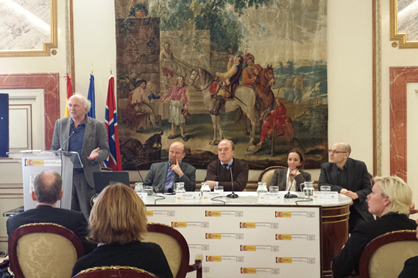Towards a new welfare state model?
 Norwegian and Spanish welfare state models are drastically different, but both of them faces challenges that forces to seek new solutions, according to the document “New social risks and welfare state reforms in Norway and Spain”, financed by the Norwegian Embassy in Spain, within the EEA Grants framework.
Norwegian and Spanish welfare state models are drastically different, but both of them faces challenges that forces to seek new solutions, according to the document “New social risks and welfare state reforms in Norway and Spain”, financed by the Norwegian Embassy in Spain, within the EEA Grants framework.
09.04.2015
Population ageing, changes in women’s roles, new familiar models, youth unemployment, new forms of inequality… All these factors threaten the Welfare states as we know it today, so reform is essential. This is one of the conclusions of the study “New social risks and welfare state reforms in Norway and Spain”, financed by the Norwegian Embassy within the EEA Grants framework.
The study, developed by a team of eight Norwegian and Spanish researchers and coordinated by Francisco Javier Moreno Fuentes and Eloísa del Pino, Spanish CSIC researchers, was presented in the Centre for Political and Constitutional Studies in Madrid. The main conclusion is that despite the huge differences between both models, there are shared challenges deriving from the transformation of society itself.
One of the main differences between both Norway and Spain is that “the Norwegian model focus on guaranteeing access to labour market, through training and active employment policies, while the Spanish one focus on guaranteeing financial cover for the unemployed”, the experts states.
The study authors recommend “rethinking the links between labour market and welfare state” and, in general, “launching a debate about how to improve transitions between educational system, labour market and unemployment”.
The document presented in March ties in with the debate on the risks and challenges that European welfare states face, and it has been financed by the Norwegian Embassy through the European Economic Area Financial Mechanism. Besides, a book has been published with the study results: “Desafíos del Estado de Bienestar en Noruega y España. Nuevas políticas para atender a nuevos riesgos Sociales” (editorial Tecnos).